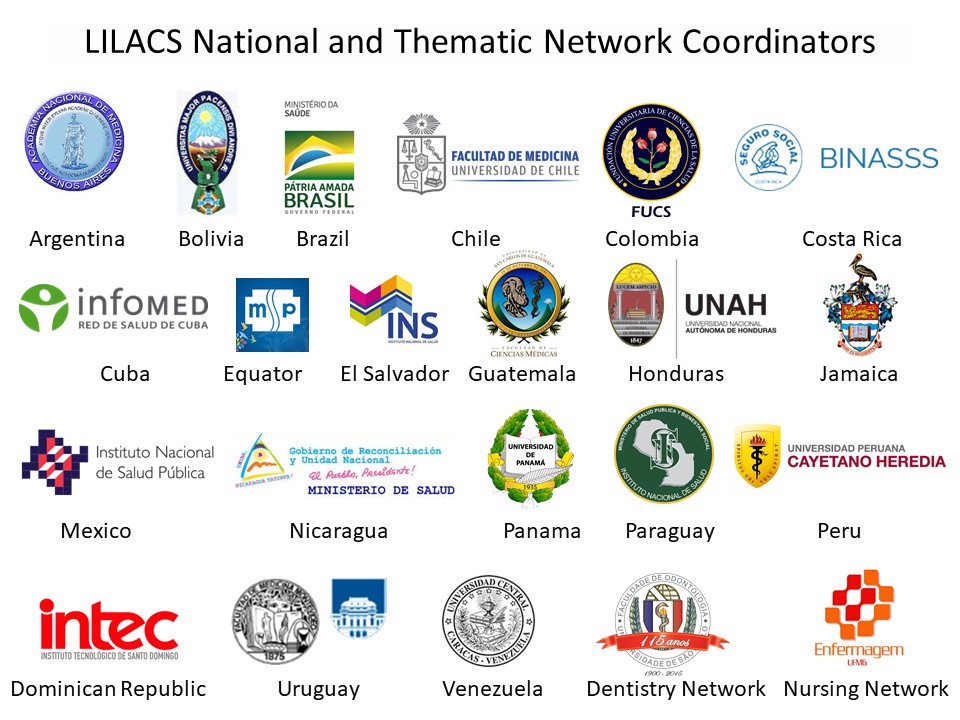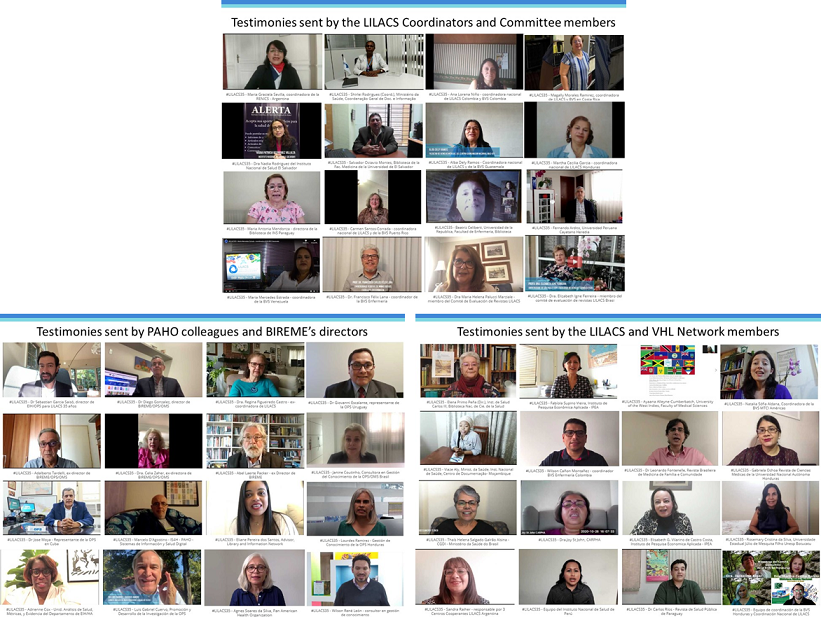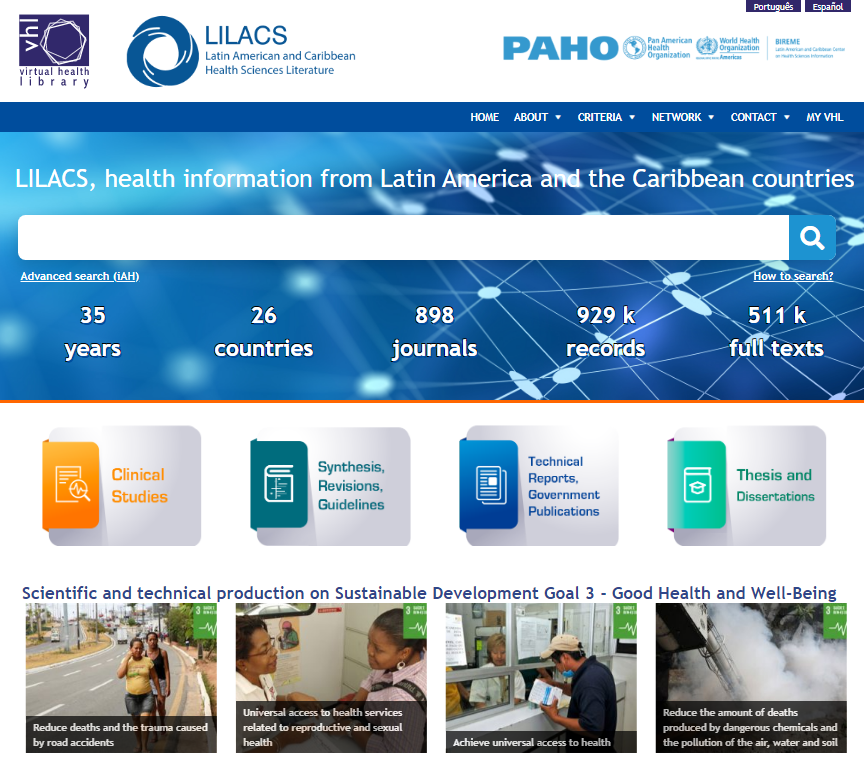LILACS – Latin American and Caribbean Literature in Health Sciences – was created in 1985 with the mission of giving visibility and facilitating access to scientific and technical literature published in the countries of Latin America and the Caribbean and thus contributing to bridge the gap between scientific knowledge and health practice, and reduce health inequities in the Region. A tremendous challenge that was only possible thanks to the collaborative work of a network of institutions and professionals in the health field and information that make up the Latin American and Caribbean Health Sciences Information System.
What at first would be just a database as an evolution of the Latin American Medicus Index (IMLA), becomes an “entity”, as Renato Murasaki, manager of Methodologies and Information Technologies at BIREME, expresses the magnitude that LILACS has achieved. In fact, LILACS is more than a reference database with links to full texts. LILACS is a model and methodology for describing, indexing and managing bibliographic content, and is an Information System composed of networks of national coordinators, cooperating centers, journal editors, indexers, evaluation committees, researchers and authors.
LILACS, whether as a database, system or methodology, is a common public good and has been widely accessed and applied in other national, thematic and institutional databases and instances of the Virtual Health Library (VHL) in Latin American and Caribbean countries and in other regions of the world. LILACS is one of the main results of the ecosystem of the Latin American and Caribbean Health Information System and represents the scientific and technical output of the region in the Global Index Medicus.
 Thus, LILACS reaches 35 years as a public good and a space for everyone, as mentioned by María Mercedes Estrada, national coordinator of the LILACS Network in Venezuela, in her statement: “LILACS is our voice and window to show scientific output in health sciences in Latin American and Caribbean countries, where each country is responsible for ensuring the visibility of its intellectual output. ” She mentions the necessary organizational structure in each country, with a national coordinating center, cooperating centers and editors, to keep their national and thematic collections updated in LILACS, in addition to a constant and committed work.
Thus, LILACS reaches 35 years as a public good and a space for everyone, as mentioned by María Mercedes Estrada, national coordinator of the LILACS Network in Venezuela, in her statement: “LILACS is our voice and window to show scientific output in health sciences in Latin American and Caribbean countries, where each country is responsible for ensuring the visibility of its intellectual output. ” She mentions the necessary organizational structure in each country, with a national coordinating center, cooperating centers and editors, to keep their national and thematic collections updated in LILACS, in addition to a constant and committed work.
Elena Primo, director of the National Library of Health Sciences at the Carlos III Institute (Spain) and coordinator of the IBECS database, which adopts the LILACS Methodology for its management, highlighted LILACS as one of the most long-standing scientific databases and declared in his testimony: “this trajectory of more than three decades of uninterrupted operation marks the maturity and quality of the information system created and complements the role of national and regional information databases is of great importance, as they are instruments that preserve and spread the knowledge of a region […] if these databases did not exist, there would be no control or registry of what was produced in these scientific communities ”.
 Fabíola Sulpino Vieira, specialist in public policies and government management at IPEA (Institute of Applied Economic Research), which is a cooperating center of LILACS, recognizing the importance of LILACS in the area of public policies, highlights in his testimony “LILACS is the most important source of technical and scientific information from our region and I highlight its relevance in the dissemination of information about programs, policies and other health interventions that are fundamental for evidence informed decision making in the health area ”.
Fabíola Sulpino Vieira, specialist in public policies and government management at IPEA (Institute of Applied Economic Research), which is a cooperating center of LILACS, recognizing the importance of LILACS in the area of public policies, highlights in his testimony “LILACS is the most important source of technical and scientific information from our region and I highlight its relevance in the dissemination of information about programs, policies and other health interventions that are fundamental for evidence informed decision making in the health area ”.
LILACS brings together the contribution of hundreds of cooperating centers of health institutions from all countries in the Region. There are more than 925 thousand documents published in AL&C including articles from 898 scientific journals, theses, government documents and other types of unconventional documents.
In the early years, this contribution came from the countries to BIREME by means of hand-filled forms, which were then entered into the database. The current FI-Admin system allows for collaborative cataloging, archiving in the cloud, metadata collection directly from journals and many other resources that facilitate the contribution of the Network and decrease the time between publication and registry in LILACS.
For the coming years, many challenges, but also very good prospects, are presented, considering that the very support of LILACS, which is its network, is its greatest strength and also one of its greatest points of attention in terms of coverage and quality, Open science it is undoubtedly the main challenge as it requires methodological and technological updates to promote collaboration, reuse, redistribution and reproduction of research. However, many developments are already underway such as the inclusion of control fields such as DOI, ORCID, ResearcherID and the launch of new LILACS selection and permanence criteria and the preparation for inclusion or relationship with preprint and research data repositories.
LILACS as Open Science brings common principles such as inclusion, justice, equity and sharing, and these 35 years of solidarity are an example of the responsibility and commitment of the Latin American and Caribbean Health Sciences Information System, through LILACS and all the databases of this System for this mission. We have no doubt, the LILACS Network is prepared to face these challenges, to continue promoting knowledge as part of the integral concept of health and well-being. LILACS from everyone and for everyone!